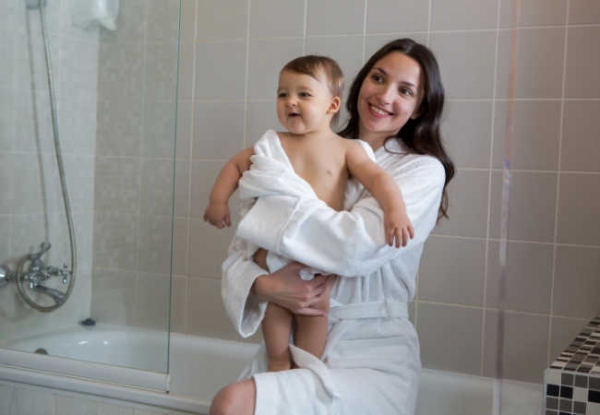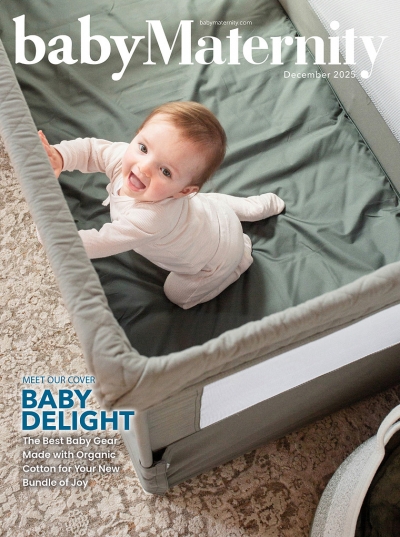Your Baby’s Developing Self-Image

When was the last time you looked at a baby and wondered about his self-image? It sounds silly, of course. We don’t generally associate things like self-concept, self-esteem, and self-image with infants, but infancy is when these things begin to form, and there is much we can do as parents and caregivers to help a child develop a healthy and positive sense of self.
A positive self-image is important. How we see and think about ourselves affects every aspect of our lives, from our relationships and interactions to the goals we set and achieve. A positive-self image means better physical, mental, social, and emotional well-being. It means feeling confident, competent, secure, and worthy. Cleveland Clinic describes self-image as “an internal dictionary that describes the characteristics of the self, including such things as intelligent, beautiful, ugly, talented, selfish, and kind. These characteristics form a collective representation of our assets and liabilities as we see them.”
We are the first mirrors that reflect a child’s image back to them. They come to see what we see. A child’s sense of self develops within relationships, and relationships then reinforce what a child thinks and feels about herself. Carla Poole puts it beautifully in the article titled “Ages and Stages: How Children Develop Self-Concept” when she says, “Caring for a baby is a joining together of two individuals who are searching to make a deep emotional connection.” I think that’s a beautiful description of parenting. Those first interactions we have with baby and every one after leaves an impression, a mark on the developing self-image. Here are three things you can do to help your child develop a positive self-image.
- Tune in and be fully present. Parents and caregivers can create a positive emotional bond with an infant through caring interactions with lots of touch and eye contact. Interpreting a baby’s cues is important in the development of a secure attachment. Nonverbal cues include facial expressions such as smiles and grimaces, movements such as leg kicking, and gestures such as pointing, nodding, and shaking their heads. Babies also laugh, squeal, and babble to communicate with caregivers. Look for your baby’s responses to you when you cuddle, talk to, and smile at him. Pay attention to the first signs that she is hungry or wet or tired. Respond to those cues promptly and warmly to build trust and feelings of safety and security. By tuning in, you’re reflecting back to the baby that she is worthy of attention.
- Pay attention to your cues. Just as you are learning your baby’s cues, he is learning yours. He’s picking up on your tone of voice, your facial expressions, and your gestures. Do lots of singing, talking, smiling, playing, and cuddling. Be aware of your own reactions and work to be a calm and positive role model.
- Provide encouragement and support in play and exploration. When your baby starts to crawl, walk, and interact with toys, you can help build confidence by being a “secure base” that he can look back and return to when needed. When you are engaged and delighting in his discoveries and experiences, he will pick up on that and feel good about himself and his accomplishments. You might offer encouragement such as “You did it! You put the ring on the peg!” or “Yes! That is the color green!” when he points to the correct color in a book. These are small but mighty interactions that send the message that your child is capable and has your support.
It’s important to remember that there are no perfect people and no perfect relationships. You don’t always have to get it right; you just have to be able to recognize and repair disconnects when they occur, because they inevitably will. That’s just part of the human experience. There will be a lot of influences that will leave impressions on your child, and many of those will be out of your control. We can never fully control the outcome. All we can do is show up every day with a relationship-focused mindset and offer our love and support. When we are the secure base, the “home” that our children can return to and trust in, we are giving the most beautiful and important gift we can offer - the gift of a positive relationship.













